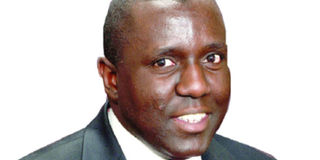Age limit petition fails: Ball is back in political arena

Last Thursday morning, a sharply divided Supreme Court dismissed the age limit appeal by the Uganda Law Society, MP Gerald Karuhanga and Mr Male Mabirizi. The seven justices hearing the appeal led by Chief Justice Bart Katureebe dismissed the petition 4-3.
Even though the Supreme Court was initially widely expected to uphold the Constitutional Court’s judgment of last year, it has generally been assumed to be a more liberal court even after a record 9-0 unanimous judgment in the Presidential Election Petition in 2016.
One key justice in the Presidential Election Petition, who wrote the lead ruling that allowed her former colleagues at Makerere’s School of Law to file an amicus curiae brief in the petition, Prof Lillian Tibatemwa Ekirikubinza, a criminologist and the first woman professor of Law in Uganda, sharply scolded the Speaker of Parliament for sending a defective certificate of compliance to the President for assent amending a number of articles of the Constitution. Closely followed by two justices about to retire from the Supreme Court, Eldad Mwangusya, a former Deputy Administrator General and Paul Mugamba Amooti, a former head of the Anti-corruption Court, both classmates of Chief Justice Bart Katureebe at Makerere University, the minority found a significant breach of standards.
The majority opinion carried few surprises.
First the informal rule, the Chief Justice like a chairman of the committee, rarely finds himself in the minority. Applying this rule, one could say he could have voted with the liberal justices, who applied a completeness and harmonious approach to interpreting the Constitution to strike down the age limit law.
Actually that rule mostly works in one direction, Odoki’s court had two narrow 4-3 decisions, including a presidential election petition. Second it takes at least one additional vote for the Chief to vote the other way.
Justice Rubby Opio Aweri, a career magistrate before becoming Judge, wrote that he did not find Article 102 to be part of the basic structure of the Constitution. Justice Aweri probably glossed over the Odoki report and the Uganda Constitutional Commission Statute, No. 1 of 1988, which identified political and orderly transition as the primary political problem of Uganda.
Article 102, like the mutilated Article 105, has distorted the fundamental workings of the 1995 Constitution upsetting the delicate balance of powers of an executive president, a moderated legislature and active judicial power with very enhanced powers of judicial review and automatic powers to make orders under Article 50 to enforce violations of the Constitution.
In fact for MP Betty Nambooze’s body injuries, Justice Aweri recommended damages rather than upsetting an amendment whose tabling was clothed in chaos at the behest of Gen Kale Kayihura and Opposition MPs, who took the mikes and instead of talking into them turned them into mobile weapons.
A more aggressive finding was made by perhaps the most influential member of the Court, Jotham Tumwesigye officially retired from the Court. Justice Tumwesigye mentioned the obvious, given that Parliament had already gone through the trouble of passing the Raphael Magyezi Bill, the doctrine of constitutional restraint should save it with its flaws. A former Deputy National Political Commissar and Inspector General of Government, there is a basic truth about this.
Throwing the Bill back to Parliament would not change the final outcome. NRM enjoys a comfortable majority of more than 200, with 358 MPs in its ranks (flagbearers and NRM-leaning independents). In fact, the Opposition is barely at 20 per cent of the chamber allowing it to effectively man committees. Between 2016 and 2019, the Opposition has been co-opted by NRM to achieve NRM’s political objectives in Parliament. In fact, during the ill-fated amendments, a number of Opposition MPs voted like they did in 2015 to support government.
The Chief Justice who didn’t say much and Stella Arach Amoko a runner-up in the 2014 race to appoint a Deputy Chief Justice may have felt that this was not the right case to force government into direct confrontation with a splintered Opposition.
Mr Ssemogerere is an Attorney-at-Law and an Advocate.




